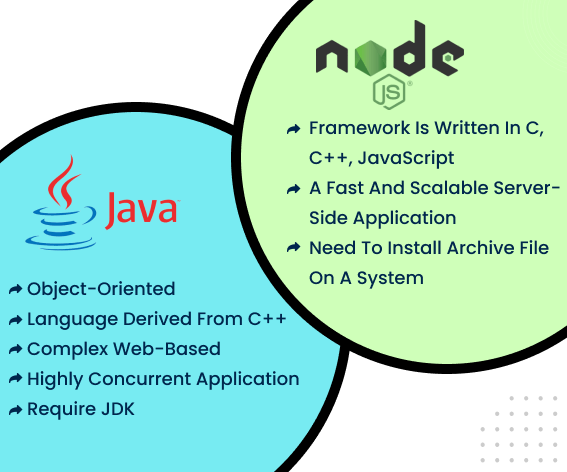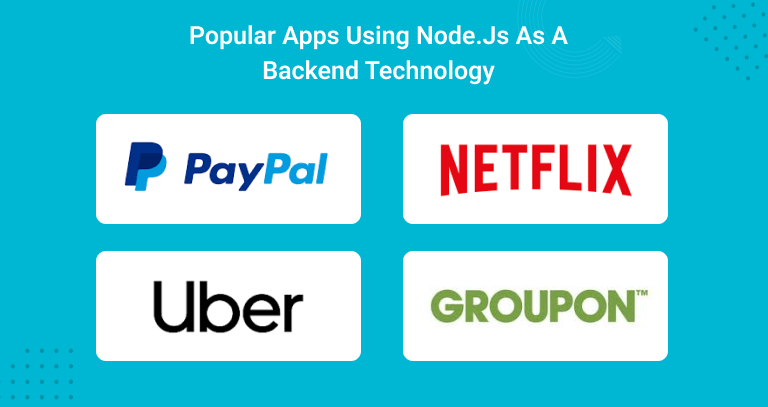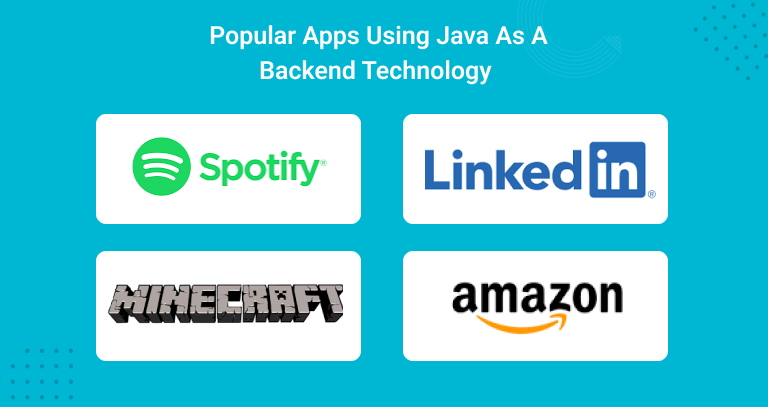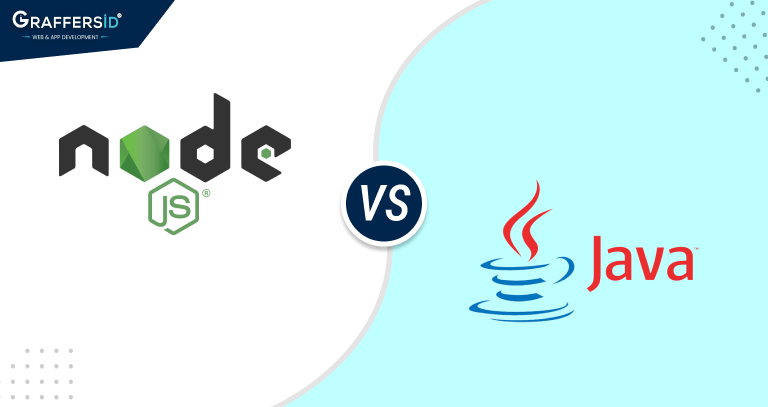Nowadays, we often see people comparing multiple technologies over the internet just like Node JS Vs Java, whether it’s hardware or software. But why do we need to compare? Why do we want to distinguish between various programming languages, development frameworks, tools, or APIs?
The answer is straightforward. The first technology decision has a significant influence.
According to business owners, applying a specific technology affects a company’s product’s functionality and growth potential. Technology affects how readily a product is supported and how effortlessly a platform might transfer to another, which is essential to development teams. The choice to pursue a particular technology may have changed the course of a developer’s career.
Let’s take a look at the prime differences between Node.JS Vs Java to help you choose the best one for your project.
What is Node.JS?
First of all, Node.js is a powerful open-source program. Ryan Dahl introduced Node.js as a server-side, JavaScript-based runtime environment in 2009. Contrary to what many sources say, it is neither a library nor a framework.
Node.js is based on Chrome V8. Therefore, in this situation, JavaScript calls are translated to machine code. Overall, the fundamental notion of this back-end platform is to execute JavaScript code outside of a browser. Two-way communication between the user’s browser and the server is what Node.js aims to achieve. With this approach, low latency and high throughput are accomplished.
Why do we call Node JS a Node?
Node uses the non-blocking paradigm where there is just one active thread. As a result, it only utilizes one CPU or core. Other cores may be employed to run databases or carry out other operations. Or Node can be running on the same system in several instances. These instances will have to communicate and make intricate calculations.
On various computers, several nodes may work together to do computation. It is therefore referred to as a “Node”, a component that helps in constructing a larger computing unit.
Want to hire remote Node.js developers: Get in touch with us here!
What is Java?
First and foremost, Java is an object-oriented programming language (unlike Node.js, Java is a statically-typed and secure language). James Gosling and Patrick Naughton, Sun Microsystems engineers, created Java in 1991. But at that time, this programming language was initially called Oak and then Green.
In any case, Java is regarded as the most popular and widely used computer language worldwide.
Advantages of Using Node.JS
Node JS is a standalone command-line tool that excels at building responsive and scalable applications. The following factors influenced its acceptance by developers worldwide.
- Use of a single language on both the client and server sides
- Workflow efficiency
- The system’s modest weight enables the development of thin applications
- Having access to JavaScript syntax
- A Node package manager for installing and looking for packages
- Continuous technological advancement (e.g., Typescript is being developed now)
Advantages of Using Java
Java is a high-level programming language that excels in resolving general problems of any kind. Although new technologies are constantly emerging, Java offers many benefits over its competitors.
- Reusing objects in different projects is possible with object-oriented programming.
- Java is a high-level language that facilitates authoring, reading, and maintenance with its simple syntax and easy learning curves.
- Numerous hosting companies accept Java since it supports a wide range of libraries. Additionally, you can use it from any computer.
- Java does not have pointers, but it does include a security manager that lets you define access policies.
- A Java application can be developed on Windows, converted to byte code, and run on any other system that supports the Java Virtual Machine (JVM).
- A unique mechanism known as a garbage collector provides Automatic Storage Management. It locates static objects and deletes them.
Difference Between Node.JS Vs Java

So, let’s compare Java vs Node.js, two of the most widely used technologies in recent years. What will be more helpful to use in developing apps in 2023? In the five most decisive categories, let’s go deep into the top advantages and disadvantages of Java and Node.js.
-
Performance Comparison
Let’s have a look at node.js vs Java performance. Java has excellent performance. But is it faster than Node.js? The answer is “no”. The leading cause is primarily due to the adoption of compilers. The trash collecting feature of Java is very well known, which could be both a benefit and a disadvantage. Node.js is a popular technology because it doesn’t require any buffering. It shortens the runtime by simply outputting data in parts. Therefore, it is evident that Node.js is the victor of this contest.
-
Cost of Development
Java and Node.js developers are not way more expensive. Even though Java development is a little cheaper in the US, the product’s final cost is still influenced by other elements like project complexity, management, etc. Therefore, both technologies are the winners in this area.
-
Speed of Coding
Node.js is renowned for being flexible and quick to develop. The first technology, however, is the opposite of Node.js because Java is a stiff language and requires much more effort to develop (though Java may save time in the long term in some cases).
-
Stability
Java may take the lead in terms of stability in this area due to the object-oriented concepts and approaches that have been used for many years. But in the end, development and testing procedures play a significant role.
-
Scalability
Highly scalable applications can be developed using both technologies. One of the two technologies is still recognized for producing better results in the mentioned domain. Since Java supports native multithreading and parallel processing, it is better in this situation. This offer is also available for Node.js apps but is less established.
-
Testing
Testing is unquestionably an essential aspect of the quality of any product. Java and Node.js both perform well in testing. With JavaScript, there are more ways to develop code, which also means more ways to test it. In the Java world, the coding and testing techniques are more unified.
-
Documentation
Java and Node.js both have extensive documentation that is concise and easy to understand. As a result, users of Node.js and Java can use their data to explore the two platforms’ functionality fully. Both technologies are considered suitable in this category.
-
Security
In this case, the image can look a little different. Some integrations might pose the greatest threat to Java. This demonstrates that the design of the programming language has little overall impact. There is no denying that Node.js has a severe security issue due to the absence of default error handling.
-
Community
As mentioned, Java and Node.js are two of the most widely used technologies today. They both have substantial developer communities as a result. The Node.js community is growing, even though the Java community is older. As a result, both Java and Node.js have many experts with in-depth knowledge and expertise in their fields.
Some most famous Apps Use Node.js as a Backend Technology

- PayPal: Node.js is used to build the Web/API components of the world’s most extensive online payment system. The software is twice as quick and contains 33% fewer lines than it usually would.
- Netflix: In Node.js, the entire web-facing functionality was rebuilt (mainly APIs). The world’s most extensive subscription-based streaming service observed a startup time decrease of around 70% due to Node.js.
- Uber: Uber’s core issue is its capacity to handle data. Therefore, the firm needed a cross-platform technological solution that was incredibly quick, scalable, and could manage the massive volume of notifications and requests. The business found that Node.js was the optimum choice for developing its extensive matching system.
- Groupon: Groupon is a famous e-commerce company that connects consumers with neighboring vendors. The company offers inexpensive gifts and digital gift cards so clients can try out new services in their area. When a company implements Node.js, it achieves approximately 50% faster speed in web pages and can handle a lot more traffic which is less than other programming languages.
Some of the globally popular companies using Node.js for the back-end are NASA, Trello, LinkedIn, Uber, Twitter, eBay, and many others.
Popular Apps Using Java as a Backend Technology

As one of the world’s most widely used programming languages, Java is renowned for having many products made with its technology.
- Spotify: Java was chosen by one of the most well-known video and audio streaming providers primarily for tracking and stabilizing data transit. Furthermore, Java is the leading technology in the business of the Android OS app.
- LinkedIn: Java was used to implement messaging, recognize and transform links in texts, and for many more purposes in the most well-known business- and employment-oriented online service.
- Minecraft: Yes, this well-known independent sandbox game is also created in Java. Unlike many other languages, which operate on hardware, Java runs directly on the JVM. Java is primarily used in the game for messaging, rendering, and game logic creation.
- Amazon: This giant is most known for its vast online e-commerce platform. Along with Google, Apple, and Facebook, Amazon is regarded as one of the biggest tech firms in the world. Amazon uses Java for the majority of its web services (AWS). They also prefer building automation scripts in Java since it is well-supported, has a richness of internal features, and provides a space for developing support tools.
Other Java-based applications include those from Amazon, Uber, Minecraft, Paypal, Netflix, and other companies.
Read Also: Django vs NodeJS: Which Is Better?
Why is node.js better than Java?
Node.js is well-liked for its competence as well as the scale and vitality of its open-source, javascript-based ecosystem. In addition, version compatibility is typically unaffected.
- The scalability capacity offered
- Node.js is short and quick
- There are several hosting companies available
- Extremely extendable
- Its capability to cache
- Learning Node.js is easy
Is Node JS easy to learn for developers?
Node is ideally suited for creating software and applications that require synchronous, real-time interactions, such as chat applications and websites. However, it also has other uses and benefits that developers find appealing, increasing its attractiveness. If you’re interested in front-end or back-end development, think about learning Node.js.
Node is written in JavaScript. Nearly every developer is familiar with JavaScript, one of the most popular programming languages. As a result, learning Node takes less time and effort, even for novice JavaScript programmers.
Can Node JS replace Java?
Will Node.js still be helpful in 2023? Can Node.js replace Java? The answer is that Java and Node.js are excellent programming languages with distinctive features. They all have advantages and disadvantages that were considered carefully during development and will undoubtedly continue to be well-liked in the future. The adoption of Node.js by developers and the use of its applications in actual projects will determine whether Java is replaced or not.
Which Node JS version to use?
Always use the LTS versions with an even number “Recommended for Most Users” on the download page. Choose an actual number Node version when learning or deploying your project to a production environment. 14. x.x LTS, 16. x.x LTS, 18. x.x LTS, and so forth are some examples.
Why is Node JS popular?
Like many other technologies, Node.js has its proponents and its detractors. Nevertheless, regardless of your viewpoint on the matter, it is a powerhouse because it is extensively used by many powerful companies, including Uber, LinkedIn, and PayPal. When making business judgments, it’s also essential to consider the standard technologies used by reputable companies.
When should I choose Node.js over Java for backend development?
The choice between Node.js and Java for backend development depends on several factors, including your project requirements, team expertise, and specific use cases. Both technologies have their strengths and weaknesses, so here are some considerations to help you decide when to choose Node.js over Java:
-
Real-time applications and event-driven architecture:
- Node.js is known for its event-driven, non-blocking I/O model, making it well-suited for real-time applications like chat applications, online gaming, and IoT (Internet of Things) applications. If your project requires handling a large number of concurrent connections and real-time updates, Node.js is a strong choice.
-
JavaScript expertise:
- If your development team has strong JavaScript skills, it might be more efficient to use Node.js. Leveraging the same language for both front-end and back-end development can streamline development and improve code consistency.
-
Rapid development and prototyping:
- Node.js can be a good choice for prototyping and quickly building MVPs (Minimum Viable Products) due to its lightweight and agile nature. It has a large ecosystem of packages and libraries available through npm (Node Package Manager), which can accelerate development.
-
Microservices architecture:
- Node.js can be a good fit for microservices architectures, where small, independent services communicate with each other. Its lightweight nature allows for faster boot times and efficient handling of individual microservices.
-
Serverless computing:
- If you are considering serverless computing platforms like AWS Lambda or Azure Functions, Node.js is a popular choice due to its quick startup times and low memory overhead, which can lead to cost savings.
-
Community and ecosystem:
- Node.js has a vibrant and active open-source community, with a vast selection of libraries and modules available through npm. This can speed up development and provide solutions for various tasks.
However, there are scenarios where Java might be a better choice:
-
Enterprise-level applications:
- Java is a strong choice for large-scale, enterprise-level applications that require robustness, scalability, and extensive support for multithreading. It has a mature ecosystem of frameworks and libraries, like Spring, which are well-suited for building complex, mission-critical systems.
-
Strong typing and static analysis:
- Java’s strong typing and static analysis capabilities can help catch errors at compile time, making it suitable for projects where type safety and robustness are critical.
-
Long-term support and maintenance:
- Java has a long history of stability and backward compatibility, making it a good choice for projects that require long-term support and maintenance.
-
Integration with existing Java systems:
- If your organization already has Java-based systems in place, it may be more convenient to choose Java for new backend development to ensure seamless integration.
Ultimately, the choice between Node.js and Java should be based on a careful assessment of your project’s specific requirements, your team’s expertise, and your long-term goals. In some cases, a combination of both technologies might also be a viable solution, leveraging each where they excel within your application’s architecture.
Can I Use Node.js and Java Together?
Now that we have a basic understanding of Node.js and Java, let’s address the burning question: Can you use them together in a single project? The short answer is yes! However, it’s important to understand the context in which you might want to do so.
1. Microservices Architecture
- In a microservices architecture, you can use Node.js and Java for different microservices within the same application. This approach allows you to leverage the strengths of each language where they are most suitable.
- For instance, you could use Node.js to build a lightweight, real-time dashboard while using Java for heavy-duty backend processing.
2. Integration with Existing Systems
- If you have existing Java-based systems and want to add new features or components, you can use Node.js for those additions. Node.js is excellent for creating RESTful APIs and handling asynchronous operations.
- This hybrid approach allows you to modernize and extend your Java applications without completely rewriting them.
3. Frontend and Backend Separation
- Another common scenario is using Node.js for the frontend and Java for the backend. This separation of concerns is a best practice in web development and offers flexibility and maintainability.
- Node.js excels at building responsive and interactive user interfaces, while Java can handle complex business logic on the server.
How to Combine Node.js and Java
Now that you know it’s possible to use Node.js and Java together, let’s explore the various ways you can combine these technologies in a single project.
1. RESTful APIs
- One of the most common integration points for Node.js and Java is through RESTful APIs. Node.js is well-suited for building lightweight, fast APIs that can communicate with Java-based backend services.
- You can use popular Node.js frameworks like Express.js to create APIs and have them interact with Java services using HTTP requests.
2. Message Queues
- When building distributed systems, message queues play a vital role in enabling communication between different components. Node.js and Java can work together seamlessly through message queue systems like RabbitMQ or Apache Kafka.
- Node.js can be used to produce messages to the queue, while Java services consume those messages and process them accordingly.
3. Containerization
- Docker and Kubernetes have become essential tools in modern software development. You can containerize both Node.js and Java applications and orchestrate them using Kubernetes.
- This approach simplifies deployment and scaling, allowing you to manage and scale your mixed-language applications efficiently.
Benefits of Using Node.js and Java Together
Combining Node.js and Java in your project can offer several advantages, catering to different aspects of application development.
1. Performance Optimization
- Node.js is known for its high-speed, non-blocking I/O operations. By using it for specific tasks, you can optimize your application’s performance in critical areas.
- Java’s robustness and multithreading capabilities can handle heavy computational tasks efficiently.
2. Scalability
- Node.js’s event-driven, asynchronous architecture makes it ideal for handling a large number of concurrent connections. Java complements this by providing the scalability needed for backend processing.
- This combination ensures your application can scale horizontally to meet growing demands.
3. Flexibility
- Leveraging both Node.js and Java allows you to strike a balance between rapid development and enterprise-level reliability.
- Node.js’s agility is perfect for quick feature development, while Java’s stability ensures long-term maintenance and support.
4. Resource Utilization
- Java’s memory management is well-regarded for its efficiency. By using Java for resource-intensive tasks, you can make the most of your server’s capabilities.
- Node.js can run efficiently in smaller instances, optimizing resource allocation.
Summarizing
As we conclude our comparison between Node.js and Java, we can say that each language has pros and cons. Despite being a more established and ubiquitous language than Node.js, Java is also more complex. When comparing the performance of Node.js to Java, it can be said that Node.js’ single-threaded limitations are made up for by its speed and lightweight nature.
Choose GraffersID to hire excellent back-end and front-end Node.js developers to develop unique applications for your business.
What are you waiting for? Let’s connect.









